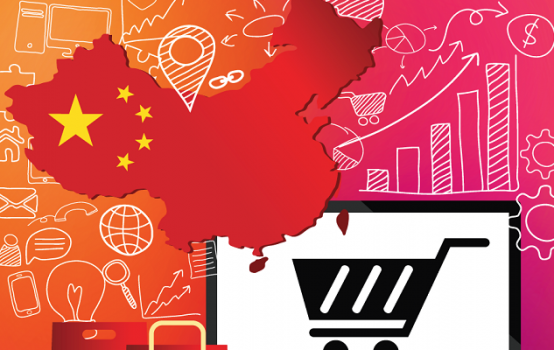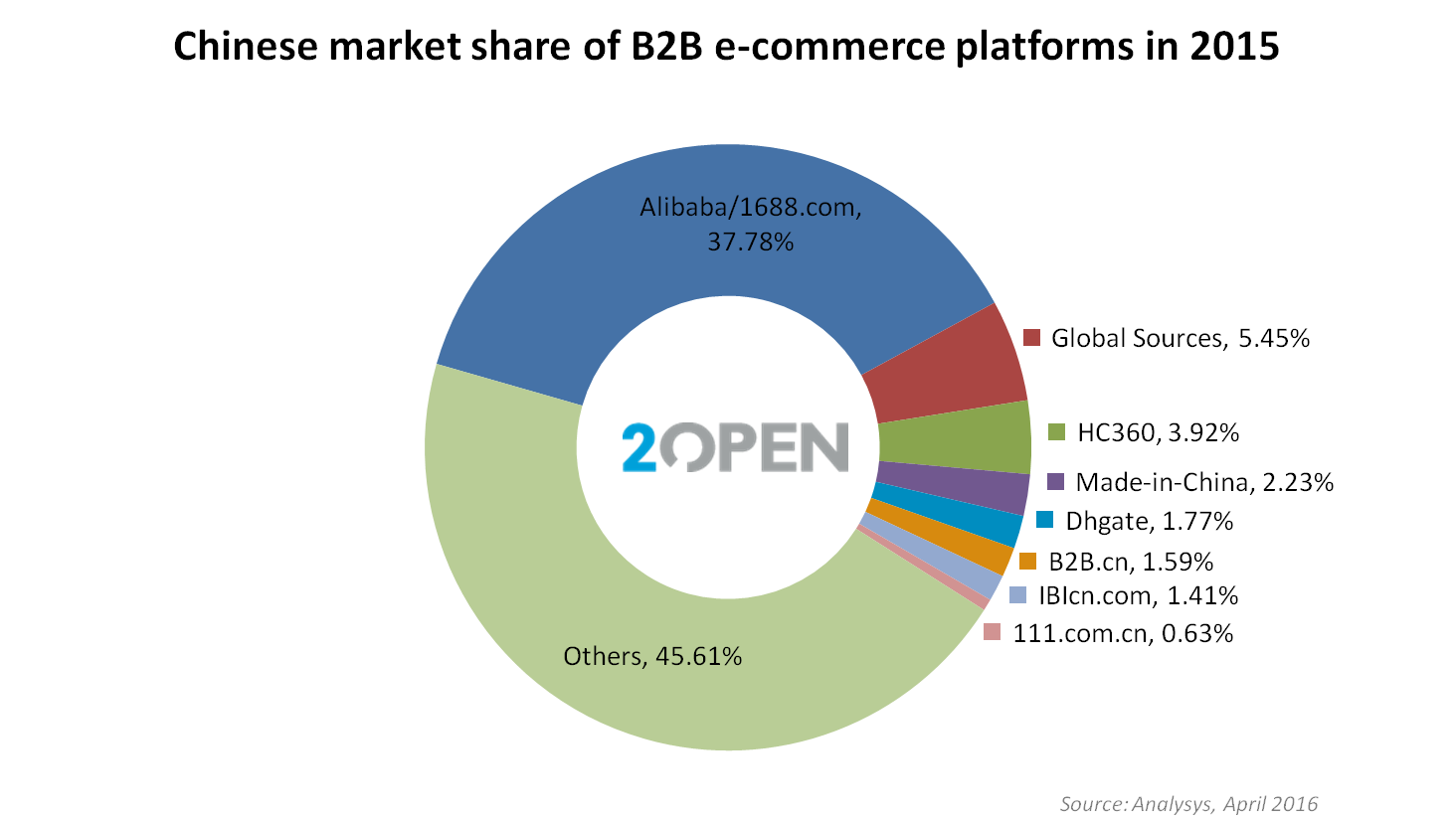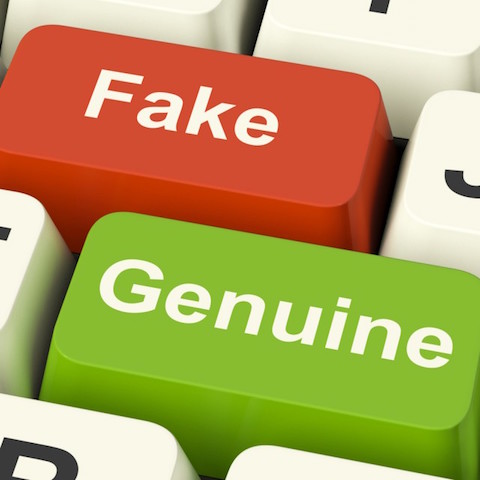5 Bugs To Avoid When Doing E-Commerce In China
Have you ever tried to build a new overseas brand and fail in your attempt? In any approach to China, foreign brands often make some common mistakes when trying to sell their products in China mainland. Although such misconceptions are not exclusive to online environment, we will focus on those that particularly affect your approach to e-commerce in China. China is already the world’s first e-commerce market.
Are you going to miss its enormous potential?
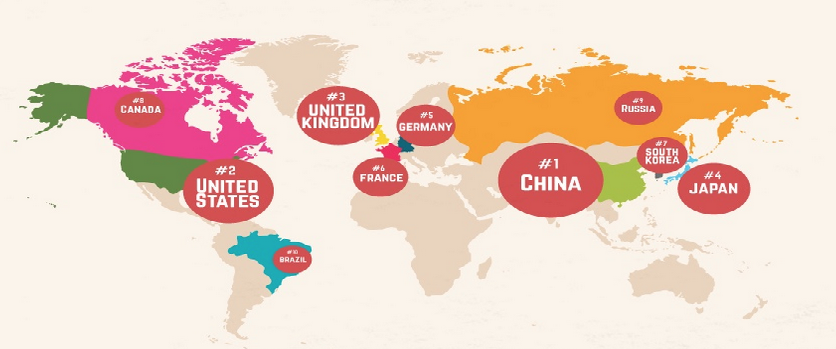
First bug: China is mobile, and you better record it
It is not the first time we tell you this, and for sure it won´t be the last. As we mention before in our article “How to Take Advantage of the Latest Ecommerce Revolution?”, Ecommerce has been a great revolution for both companies and customers.
Nowadays, Chinese prefer to use their mobile devices rather than their laptops and according to the new trend, companies have already starting to adapt themselves to portable devices. Moreover, those companies using U-commerce are focused on improving the customer experience through customizing and navigation created in cooperation with the User.
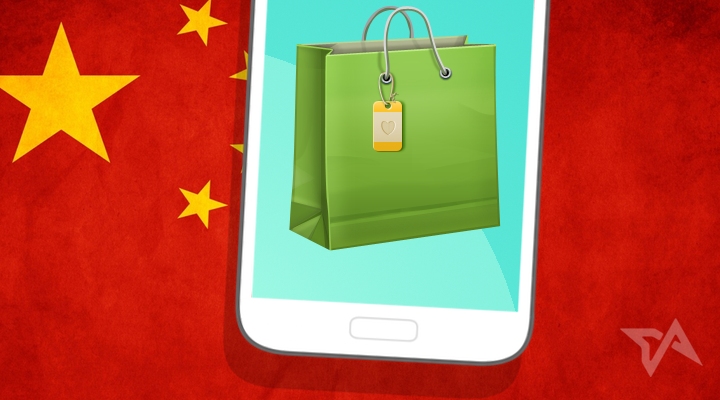
Second bug: E-commerce may be an asset in your country, but in China is irreplaceable
We cannot fail to mention Frank Lavin, CEO of Export Now, when he says,
“In China, Ecommerce is the cake.”
This may mean that you will need to adapt your business to the new environment. Do not expect it to be China who suits you, this does not work this way.
Remember that whoever hits first, hits twice. Embrace e-commerce as the enabler of your business it is, and take advantage of the immense benefits that electronic commerce can bring to your company to start selling around the World!
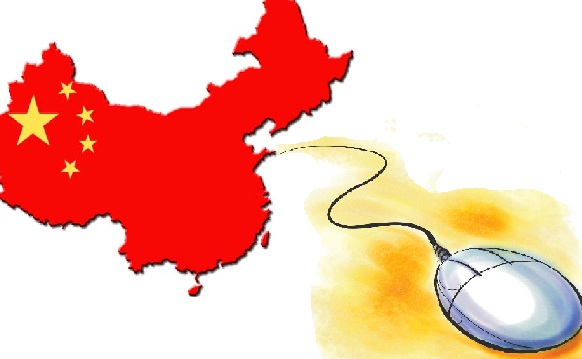
Third bug: Social Media is there to stay. Register your account and start moving!
Surely you’ve never heard the words Baidu, WeChat and Weibo… and let us tell you that you have a huge problem in China.
Not only around the 93% of the online searches in China are done in their own search engines –Have you ever heard Google does not work in China?– but also about a 68% of the customers take a look on the official Social Media account before buying.
Do not miss the opportunity to have a voice in that huge chicken coop is the network, start developing a tailored communication strategy for your brand and gain your piece of the cake!

Fourth bug: Domestic and lazy thinkers, or how the triumph from a day doesn’t make it daily
Do you think you will keep doing in China pretty much the same things you were doing before and as a result you will achieve success?
A basic rule you should never forget again is, no matter the experience and the many different markets in which you have entered before, is that new horizons always implies a new starting on your understanding of the target, so we definitely encourage you to start a market analysis.
Will your brand be competitive in China?
Do you offer something different regarding your competitors?
Is there a suitable market niche in the country ?
These and a thousand more questions require a prior discussion, keeping in mind that China should not be underestimated: the country enjoys some peculiarities you definitely must know before starting your landing.
We strongly recommend you seek assistance from professionals focused on the Chinese market, in order to enhance your chances of success in the country.

Fifth buf: Do not try to do everything by yourself, ask for advice
We are not tired of saying it, and will do so again: China is not a flat road. Do not try to embark on this mission unaccompanied, but pick very well with whom.
Look for complementary partners interested in joining forces, go to Government agencies dedicated to external actions and internationalization and definitely search for specialized agencies in the country to start outsourcing some tasks.

Already in search of a consulting expert in digital marketing and e-commerce? You have come to the right place.

Infographic: 10 Things You Need To Know To Build a Chinese Website
A picture is worth a thousand words
After the great success achieved by our two articles 10 Things You Need To Know To Build a Chinese Website (I) (II), in the team we have thought it would be a good idea to summarize and turn them into an infographic.
We hope you enjoy it as much as we enjoyed its elaboration 🙂
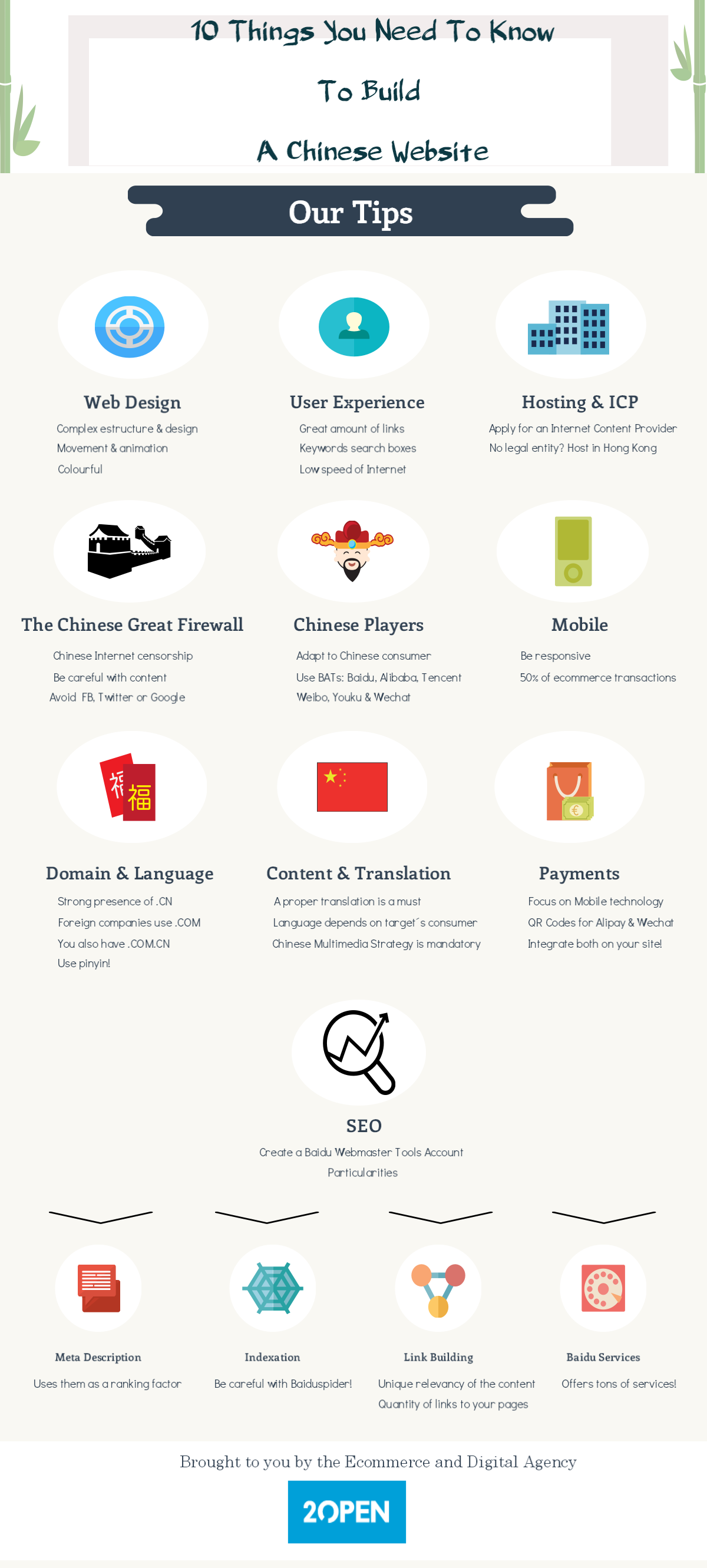
Are you looking for a digital marketing and ecommerce agency?
Visit us. Let´s have a talk!
How will the “Brexit” influence China?
“It could be the darkest day in the history of European stock market.”
“Brexit”, the abbreviation of “British exit” that mirrors the term “Grexit”. “Grexit” was created when Greece tried to exit the European Union but failed at last. And now, the Britain makes it.
“In current phase, we are not able to realize the result (of Britain leaving the EU). But definitely, the uncertainty brought by the vote result is an enormous challenge.” The CEO of Deutsche Bank, John Cryan said.
Although from the earlier public opinion polls, the financial market held a positive attitude towards the referendum, the final result really touches off a huge earthquake among the global market.
“This result will absolutely be a huge blow towards the process of European Integration!” the Chancellor of Germany, Angela Dorothea Merkel said this afternoon.
The European stock markets nosedived at the opening, especially the bank board. In the opening today, the German stock market decreased almost 10%; the British fell by 9%; the French decreased 11%; the Spanish dived 17%. The Portugal Stock Index 20 fell by 9% and touched the lowest level since 1996. And the FTSE 300 even recorded the biggest day slide on record.

The indexes in Europe jold
Also, as the final result was announced to public, the British Prime Minister, David William Donald Cameron, declared that he will resign his position in October. “I will do everything I can in future to help this great country succeed.”; “I think the country requires fresh leadership. I do not think I can be the captain to take the country to its next destination.”
We respect the final choice made by British citizens for the European issue referendum
8153km, this is the distance from London to Beijing as the cross flies. How would the final result of this referendum influence China? What are the reflections of the Chinese?
The Chinese Ministry of Foreign Affairs said that the Chinese government and the citizens would respect the choices of British citizens towards this referendum. “China has consistently developed its relations with the UK and the EU from a strategic height and a long-term respective” Hua Chunying, spokesperson of China’s Ministry of Foreign Affairs, said this afternoon.
“China supports Europe in choosing its own way of development.” she stated, emphasizing that a prosperous and stable Europe is in the interests of all sides.
“China hopes the UK and the EU could soon reach an agreement on Britain’s exit“, Hua added.
And from the social media platforms (mainly Weibo), the citizens hold mainly 2 different opinions towards the final result
– “The Brexit is an absolute bull for China, it’s a God-given opportunity.” Dan Bin, the CEO of the Shenzhen East Haven Investment Management Co. Ltd posted on Weibo showing a POSITIVE ATTITUDE:
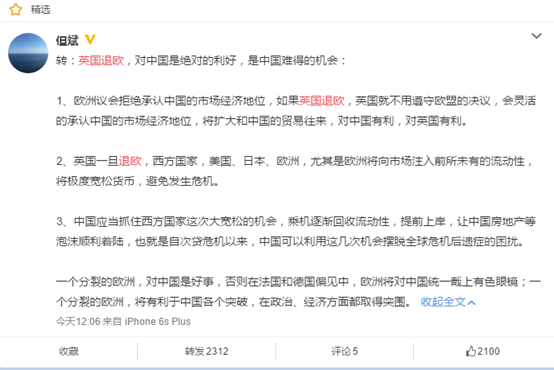
Dan Bin original Weibo post
“1. The European Parliament will refuse to recognize China’s market economy status. If Britain exits the European Union, Britain will no longer need to observe the resolution decided by EU. It can flexibly recognize China’s status and expand the trades with China. This is fruitful for both China and Britain.
2. Once Britain exits the EU, the western countries such as U.s, Japan, Europe, especially the Europe will inject unparalleled liquidity into the market. They will extremely loose the currency to avoid any crisis.
3. China should catch this opportunity to take back the liquidity, to go ashore and land the bubble of the Chinese real estate successfully. China can use this opportunity to get off the perplex from the sequel of the global financial crisis.”
In this comment, the publisher thinks that this is an opportunity for China to recuperate the domestic finance and expand the trades with Britain. He also says that this is a good thing to China, since the Europe always recognize China with prejudice due to France and Germany. A broken Europe will be benefit for China to seek for sally ports, in both politics and finance.
– But also, there are other voices that, once again, even being positive, are also MORE RATIONAL. From the comment of Ifeng news, there are 6 main effects towards China:
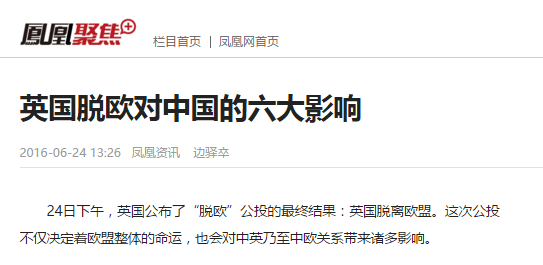
Ifeng comments on their website that have been forwarded through Weibo
“1. The students studying in Britain can save tens of thousands of dollars
If UK exits the EU, the exchange rate of Pound will crash. Thus, for people to study or travel in UK, it would be a bull. Citigroup estimates, if the British exits the European Union, the exchange rate between Pounds and U.S. dollar will fall by 10% to 20%. For the UK students, the one-year tuition would be 1.5 million pounds and living expenses would be 10000 pounds. Thus, they may save 2.4- 4.8 million yuan per year.
2. The devaluation pressure of China Yuan increases
If UK exits the EU, the exchange rate of Pound will crash. Although, for people to study or travel in UK, it would be a bull, for the short term foreign exchange market, the depreciation of sterling will lead to the appreciation of the dollar, and will cause the devaluation of the China Yuan towards the US dollar.
Economists said Britain’s leaving could make the financial market panic, leading to the capital outflows in mainland China, increasing the devaluation pressure, and challenging the monetary policy management of the central bank.
3. Yuan’s internationalization step will be disrupted
London has become the second largest offshore settlement center of China Yuan after Hong Kong. However, once the UK exits the European Union, the currency bonus will disappear. And the costs of strategy promotion in EU by Britain will also increase significantly. Chinese financial institutions need to consider dispersions to Paris, Frankfurt, Luxembourg and other places. This action will cost price.
4. Sino-EU trade cooperation will face a change
Some analysts believe that the economic impact of the British leaving EU may affect China ‘s exports, especially once the EU tend to adopt trade protectionist policies. Then, it will affect bilateral trade.
Once the UK exits the European Union successfully, the process to strengthen the strategic cooperation plans with the EU by the British will become difficult. The left is tantamount to breaking the invisible indirect cooperative ties between China and the EU, so that China had to choose other ways to press on with cooperation, and the impact from the various pre-bidding trade policies is also likely to be greatly reduced and become huge sunk costs .
5. No more ” the channel into Europe ” for Chinese enterprises
China has 500 million potential customers in the European market, however, due to protectionism, Chinese enterprises are often turned away. Britain is regarded as the most active countries within the EU which advocates free trade and investment liberalization. Thus, many Chinese companies will select the British as their production bases in Europe. And London will be recognized as a ” passage to Europe”. If Britain left the EU, may arise between the EU, the potential trade barriers between Britain and Europe will reduce the willingness of these enterprises to produce in UK. Some companies may choose to move to Brussels or Dublin, which are the areas have convenient and free market within the European Union.
6. Chinese people will be on the window period for overseas house purchasing
In recent months, international investors’ enthusiasm for commercial real estate investments in UK decreased significantly, while the sentiment increased. Some industry insiders predicted that once the United Kingdom exits the EU, the house prices in UK will fall down. When coupled with the depreciation of sterling, it will further promote the real estate market volatility, which would be an excellent “window period” for Chinese investors. Some industry insiders said that since the supply and demand relationship is still the main determinant of UK property currently, the UK house prices are still optimistic within the next five years and expected to increase about 25%. This would be more profitable for investors focusing on long-term profit.”
our conclusion
Although the SSE (Shanghai Stock Exchange) composite index fell by 1% when closed, the Chinese citizens and market now are still having a positive attitude towards this result. As per the Chinese, as what we mentioned before, they respect the choices of the British, and also their democratic rights, or at least that is what we could see on the digital walled garden build within China.
How to Sell B2B Online in China
Last week we were in an event in Valencia organized by our partner, the Valencia Chamber of Commerce, in which we shared our knowledge about the B2B online business development in China in front of a full auditorium.

We were glad to share the “stage” with 2 of our best clients:
– Amvos Consulting: leading digital marketing agency in Europe and South America
– SoloStocks: best B2B online platform in Spain currently present in over 12 countries in Europe and South America
And that is what we talked about:
– WHICH ARE THE MAIN ONLINE B2B PLATFORMS IN CHINA?
As we can see in the top image chart, the clear winner in the B2B Chinese market is Alibaba with its domestic platform 1688.com which absorbs 37.78% of the market share as per April 2016, followed far behind by Global Sources (5.45%), HC360 (3.92%), Made-in-China (2.23%) and DHGate (1.77%).
– Alibaba.com/1688.com: Alibaba.com is the leading platform for cross-border wholesale trade, serving millions of buyers and suppliers around the globe and 1688.com is the main B2B marketplace for domestic China trade among small and medium enterprises.
– Global Sources: It is a leading B2B media company and a primary facilitator of trade with Greater China. More than 1 million international buyers, including 95 of the world’s top 100 retailers, use these services to obtain product and company information to help them source more profitably from overseas supply markets and generate sales leads and win orders from buyers in more than 240 countries and territories.
– HC360: is the third most important domestic B2B e-commerce operator in the People’s Republic of China. With its professional information services and advanced internet technologies, it has established a reliable demand and supply platform for SMEs, and has been providing them with complete business solutions over the past 22 year.
– Made-in-China: was developed and is operated by Focus Technology Co., Ltd. Focus Technology, is a world leading B2B portal, specializing in bridging the gap between global buyers and quality Chinese suppliers.
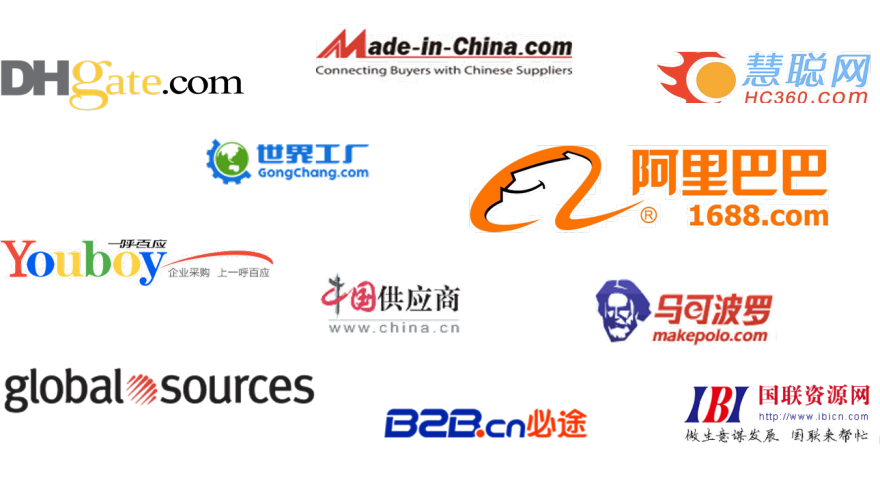
Since China’s policy of reform and economic openness, the B2B traditional model unlocked unprecedented levels of growth and development. With the Internet booming and the transition of trade models taking place, most industries have enrolled in the online B2B revolution to develop their brand. For this reason, hundreds and hundreds of new B2B platforms are born trying to differentiate from each other and creating that way an unparalleled war. And we see new attempts to get to the top of this pyramid, day in and day out, as they all want to get a piece of the huge cake.
– BUT, WITH SO MANY OPTIONS… HOW CAN I CHOOSE THE RIGHT PLATFORM?
We list for you the key factors that should be taken into account in order to select the best platform for your brand to sell your products in a business-to-business model in China:
– Establishments costs: Lower implementation costs through simple installation and integration and unproblematic expansion options. The vast majority of wholesale online trading platforms in China are “free” to use. You can create your own shop and list your products. That way you have your own B2B storefront in China; but how will your products get noticed within the others? All these places provide different visibility packages. Call it gold member, golden supplier or whatever other name you can imagine; the important thing here is to compare these packages and what is exactly what they offer.
– Volume: What is the number of suppliers and competitors? What is the traffic volume generated in the platform? In this area, 1688.com is the clear winner from both sides. Anyway, there are also other vertical platforms that might be worth checking.
– Chinese partner: In order to create a shop and list your products in any Chinese domestic B2B platform, you will need to go hand in hand with a Chinese partner as you cannot use your foreign business licence to sell products within greater China. Here it appears the classic dilemma: Chinese partners are usually very opaque and don’t like to share any kind of information. 2 Open, as a Chinese and Spanish company, can be the right Chinese partner with modern European-style management and creates a totally transparent relationship with its customers. We want to succeed with you and not the other way around.
– Promotional tools: It is important to analyze which actions can be done in order to get more traffic to your shop. The most of them offer performance marketing actions in a CPC or CPM model, both for keyword optimization and display actions. The prices are usually high and a study should be done to assure that the ROI is the right one.
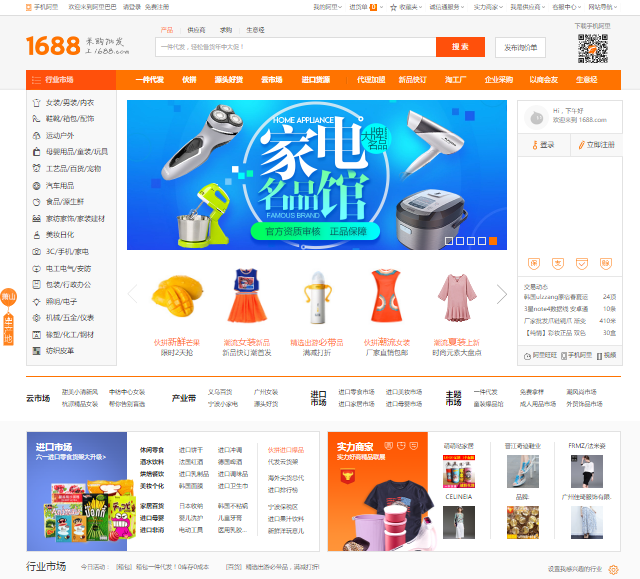
1688.com Homepage
In 2 Open, we usually recommend to do a market research that can lead us to take the best informed decisions: channel/s, range of prices, target audience, marketing budget and promotional efforts, potential return of investment, etc.
In another post we will show you how to optimize traffic within 1688.com to obtain more leads, so keep checking our blog and contact us if you have any questions. 2 Open can help you succeed in the Chinese B2B online world!
General situation of fake products in China
It is common knowledge that fake products are everywhere in China, from large cities like Shanghai to remote small towns in Western China and, not surprisingly, online markets are not the exception, even though there is a lack of acknowledgment from their part, it seems that fake products are a part of China whether we like it or not.
The online market giant Alibaba group was sued in the U.S. regarding fake products regulations. According to Jack Ma, the founder of Alibaba, his company spends over one hundred million RMB each year on actions against counterfeit goods. The situation has improved considerately over the past few years, some shops have even been closed down due to this sort of issues. 2Open, as a company who deals everyday with marketing and e-commerce, is used to supervise online sales in China for many clients and the number of shops selling a certain brand with an unbelievably lower price has decreased noticeably in comparison with last year. There is still a lot of work to do, but exactly what types of products are more likely to be faked?

SHENZHEN, CHINA – AUGUST 04: (CHINA OUT) Police officers deal with fake brand-name items at a shop on August 4, 2014 in Shenzhen, China. Shenzhen police seized a large number of fake brand-name items, like Hermes, Gucci, Rolex, Chanel, Prada, Miumiu, and so on, worth 5,000,000 yuan (810,000 USD). (Photo by ChinaFotoPress/ChinaFotoPress via Getty Images)
The most common faked goods are well-known brands, such as Nike, Adidas, Louis Vuitton, Gucci, etc. If a new brand wants to enter China, it will seldom encounter issues regarding fake products. In this situation, just a small budget is needed for online marketing which could be used for setting up a shop on www.taobao.com, putting online Ads or even buying key words on search engines, all of which can have a positive effect and lead buyers to get to know your brand. Since you are the shop owner and the only supplier at this moment, the buyer will come to you directly; no other shops will take potential buyers from you.
Let us say your brand successfully entered the Chinese market, perhaps one day someone will start faking and selling your products, but how would this affect your brand? Some argue that this is just indicator of the success and popularity that your product has had in the Chinese market and that there are no reasons to be worried. Experts agree that there is plenty of space in the market for both parties; a lot of people prefer to buy original products for a higher price than fake ones for a lower one. Counterfeiting could be considered a promotion activity for a brand, after all, if you are confident about your products, put money into marketing, let people know about it, you will get money back, no doubts about it, but how is the future looking for fake goods?
According to Xinhuanet, the General Administration of Quality Supervision, Inspection and Quarantine (AQSIQ) has gathered around four giant e-commerce platforms: Alibaba, Jingdong, Suning, Yihaodian to sign a cooperation agreement which will help to release inspection results of the fulfillment of product quality commitment. AQSIQ has developed a search platform of inspection of product quality, which will be put online for public use around March 15, 2016.

Fake products problems continue to plague the development of e-commerce. Jingdong and Alibaba have been fighting a war these days, accusing each other of not making efforts to end the fake goods. The offline scene does not look very bright either, street shops are now going through a rough time these days, people are getting used to purchase everything online, from groceries to electronics, during the singles day alone (Nov. 11, 2015) Taobao reached a sales volume of 91,217,017,615 RMB.
It is an Internet Era, no doubt about it, and counterfeit goods should not represent any obstacle if one should intent entering the Chinese market. A smart digital marketing strategy, like the one 2Open offers, can get your brand the recognition it deserves.
Let us know what you think in the comments below.
This article was edited by Andres Arroyo from 2Open.
2Open at Territorio Creativo: China Business Overview
On Friday the 5th of February Luis Salvador Galán, the CEO of 2Open, went to give a speech to the well-known Spanish marketing consulting agency called “Territorio Creativo” (https://www.territoriocreativo.es/en/). Territorio Creativo was founded back in 1997 and it has had a huge development ever since. In 2005 its blog (TCBlog) was brought to life which later became to be one of the most influential blogs in the field, this helped and boosted the company to the highest relevant positions in the area. As for 2009, the company decided to focus more on Social Media Marketing and nowadays they operate in many different locations around the globe and have more than 100 employees.
Every Friday they organize a meeting during a breakfast session in which an expert shares experiences, expertise and knowledge with all the company’s members, this is usually held in the Madrid and Barcelona offices. They call it TcDesayunos. Luis S. Galán decided to share his Chinese experiences in the Digital Field and commentated on his personal vision about China’s landscape. Although he could have spoken about the development and best practices of 2Open, he opted for another approach and instead took the opportunity to share business experiences and receive brilliant ideas and comments from the audience.

The talk focused mainly on creativity, differences in politics, and the development of China in certain digital areas. The relation and contrast between creativity and freedom were discussed as well as advantages and disadvantages between the Spanish political system and the Chinese one. The huge development of mobile use and e-commerce in China was also a topic of discussion, since it has had a considerable growth in the past few years. The aim of this talk was mainly to give the Spanish audience a grasp of what the Chinese business environment looks like and where it is heading so they could get an idea of the so called “Chinese dream”.
If you wish to have a look at the article of Territorio Creativo about the session, and if you speak Spanish, here is the link to it: https://www.territoriocreativo.es/etc/2016/02/china-emperadora-del-ecommerce.html
This article was edited by Andres Arroyo Olson from 2Open.
General situation of cross-border e-commerce in China
General situation of cross-border e-commerce in China
2014 is called by many the year of beginning of cross-border e-commerce in China. Traditional retailers, domestic and oversea e-commerce giants, start-ups, logistic service providers and distributors have all joined this battle trying to get a share of the cake.
No doubt this is a time of challenges and opportunities, getting to know the current situation is helpful to forecast a slice of the future.
So what do we know about the positive factors that lead the cross-border e-commerce in China continue to grow?
A window period of dividend policy
With the official documents N°56 and N°57, issued by General Administration of Customs of People’s Republic of China (PRC), the cross-border e-commerce has finally been authorized at 2014 in China. The”6+1” testing cities (Shanghai, Chongqing, Hangzhou, Ningbo, Zhengzhou, Guangzhou, Shenzhen) have since then enjoyed the tax reduction for cross-border e-commerce, which means products purchased through cross-border e-commerce channel will only be charged with personal postal articles tax, instead of the “customs + added-value tax + consumption duty” for common import trade. Thanks to policy incentives, which is aiming at bringing the oversea consumption back to mainland China, cross-border e-commerce has witnessed rapid growth.
Huge potential of customer needs
Nielsen recently issued the China’s E-commerce Industry Development and Hangzhou Index White Paper, suggesting that “affluent and well-educated young people make up the majority of cross-border online shoppers and the cross-border online shopping features at low frequency and higher spending per order compared to domestic online shopping”.
According to the statistics from General Administration of Customs and Research Center of China’s e-commerce, the size of transactions and the user’s volume have tremendously increased in these couple of years. The size of transactions grows from ten billion to hundred billion and some predictions show that it will reach trillion level in 2018.
Not everything is favorable, we are still facing many challenges
The tax reduction policy will not last for long because the government has to find a balance between the traditional trade and the cross-border e-commerce. The uncertainty of policy may affect every segment of cross-border e-commerce in China.
The immaturity of logistics and customs clearance system, the slow process makes the after sales services can’t be guaranteed. In the future shopping experience needs to be bettered with a smoother customs’ process.
The possibility of directly signing a contract between a foreign brand and a Chinese cross-border e-commerce platform is remote, therefore cross-border e-commerce platforms often use combined supply chain, which is unstable and will lead the price of product hard to be controlled. The one has the ability to get through each segment on the supply chain will be the first to take the market.
Currently, not a single cross-border e-commerce platform is widely accepted by customers, major player and start-ups are basically at the same starting line. The early stage development relies more on policies, lower price, richness of products, but as time goes, the competition will be back to the retail level – brand, supply chain and customer services.
We do still have the possibility to change the game, don’t you think?
Check the original Chinese article here
References:


